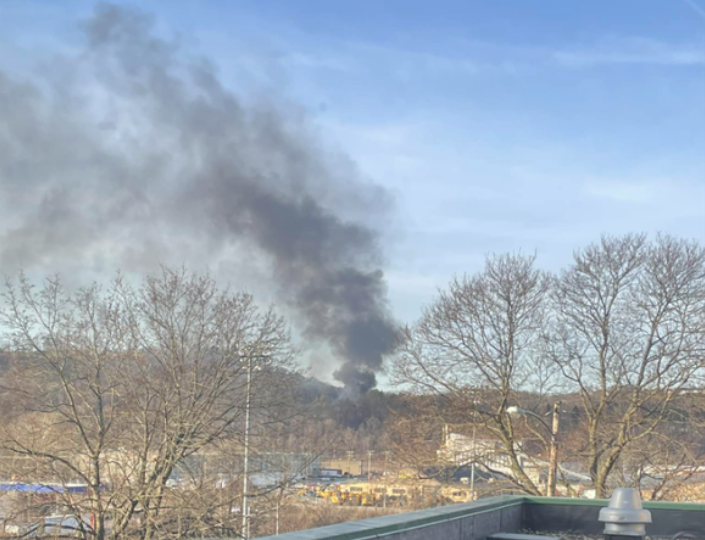BERLIN, January 21, 2024 – A wave of anti-extremism protests that began days ago continued to grip Germany on Monday, leaving cities across the country grappling with both the passion of the demonstrators and the logistical challenges they present.
After the end of today’s week, we will enter the new week tomorrow, but the strong protests going on all over Germany for the last few days have not only put the local residents in great trouble but are also making it very difficult for the administration. The entire city of Germany is currently burning in such a flame of protest that it is not even possible to describe it in words.
Chanting slogans like “Never Again is Now” and “Defend Democracy,” thousands have taken to the streets, incensed by reports of a recent meeting where right-wing extremists, including members of the Alternative for Germany (AfD) party, discussed mass deportations of immigrants.
Protests Reach Fever Pitch:
- Frankfurt saw the largest single demonstration with 35,000 participants.
- Major cities like Hamburg, Stuttgart, Nuremberg, and Hannover hosted similarly sizeable rallies.
- Berlin, Munich, and Cologne brace themselves for further large-scale protests this week.
Escalating Anger Fuels Movement:
- The protests, unprecedented in their scope and intensity, represent a surge in popular opposition to the AfD’s growing influence.
- Organizers, overwhelmed by the response, see it as a sign of a burgeoning popular movement against the far right.
Meeting Exposes Extremism, Ignites Protests:
- The catalyst for the demonstrations was a media report revealing a November meeting where figures from the extremist Identitarian Movement and the AfD discussed “remigration” plans – euphemisms for mass deportations.
- While the AfD distanced itself from the meeting, claiming no official involvement, public anxiety over its rising electoral success is palpable.
AfD’s Growth Sparks Ban Debate:
- The party, founded in 2013, has steadily gained ground, now polling at a national second place with 23% support, far exceeding its 2021 election result.
- Recent wins in mayoral and regional elections, the first for a far-right party since the Nazi era, add to the alarm.
- Amidst heightened fears, calls for banning the AfD have resurfaced, sparking debate about its effectiveness and potential benefits to the party.
Leaders, Celebrities Condemn Extremism:
- Politicians across the spectrum, including Chancellor Olaf Scholz and Christian Democrats’ leader Friedrich Merz, voiced support for the protests, calling them essential demonstrations against hate and historical amnesia.
- Prominent figures from sports, entertainment, and business also lent their voices to the cause.
Future Uncertain, But Resistance Rising:
- This weekend’s demonstrations mark a potential turning point in Germany’s struggle against the far right.
- With public anger at its peak and protests gaining momentum, the AfD faces mounting pressure to confront its extremist ties and address growing concerns about its agenda.
- While the future remains uncertain, one thing is clear: Germany’s silent majority has found its voice and is determined to defend its democracy from the shadows of the past.
Record Turnouts Signal Growing Momentum:
- Frankfurt saw the largest single protest, with 35,000 participants.
- Similar demonstrations across Stuttgart, Nuremberg, and Hannover also drew sizable crowds.
- Hamburg’s Friday protest, cut short due to safety concerns, reportedly attracted 50,000 people.
- Berlin, Munich, and Cologne anticipate further sizeable rallies on Sunday.
Protests Surpass Previous Efforts:
- The sheer scale and spread of this weekend’s demonstrations, reaching beyond major cities to smaller towns, mark a significant escalation in anti-AfD sentiment.
- Organizers, surprised by the overwhelming response, see it as a sign of a burgeoning popular movement against the far right.
Correctiv Report Ignites Public Fury:
- The catalyst for the protests was a media exposé revealing a November meeting where extremists, including AfD members, discussed “remigration” proposals – code for mass deportations.
- While the AfD distanced itself from the meeting, claiming no official involvement, the party’s growing electoral success fuels public anxiety.
AfD’s Rise Sparks Debate on Banning the Party:
- The party, founded in 2013, has steadily gained ground, now polling at a national second place with 23% support, far exceeding its 2021 election result.
- Recent victories in mayoral and regional elections, the first for a far-right party since the Nazi era, add to the alarm.
- Amidst heightened fears, calls for banning the AfD have resurfaced, sparking debate about its effectiveness and potential benefits to the party.
Opposition Leaders, Celebrities Join Chorus Against Extremism:
- Politicians across the spectrum, including Chancellor Olaf Scholz and Christian Democrats’ leader Friedrich Merz, lauded the protests as vital demonstrations against hate and historical amnesia.
- Prominent figures from sports, entertainment, and business also voiced their support.
Protests Seen as a Turning Point:
- This weekend’s demonstrations mark a potential turning point in Germany’s struggle against the far right.
- With public anger at its peak and protests gaining momentum, the AfD faces mounting pressure to confront its extremist ties and address growing concerns about its agenda.
- While the future remains uncertain, one thing is clear: Germany’s silent majority has found its voice and is determined to defend its democracy from the shadows of the past.


